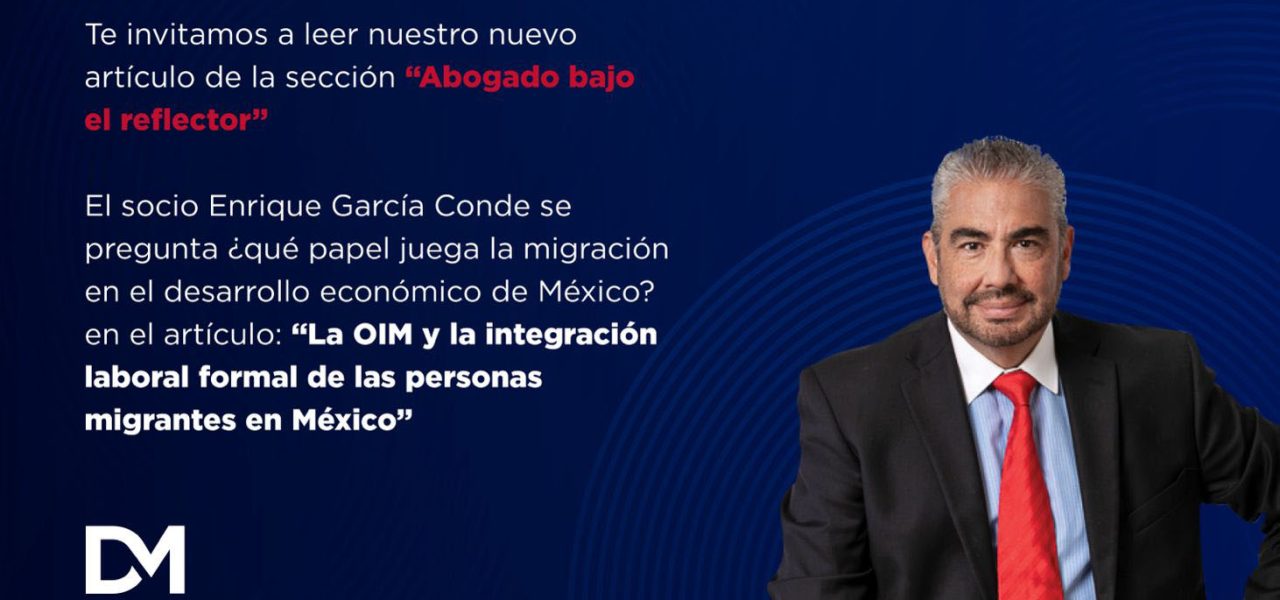In a world marked by the constant movement of people in search of better opportunities, Mexico has emerged not only as a transit country but also as a destination for thousands of people on the move. Between 2000 and 2020, the international immigrant population increased by 123%, and Nuevo León became the fifth state with the highest issuance of Temporary Resident Cards (TRT) and Permanent Resident Cards (TRP).
In this context, the International Organization for Migration (IOM), a UN-affiliated agency, has played a key role in promoting policies and programs that support the formal labor integration of migrants. The IOM recognizes that decent and legal employment is one of the most effective ways to achieve social inclusion, economic development, and the protection of human rights.
The organization also provides support with administrative processes such as validation of academic documents, training, implementation of best practices, and revalidation procedures. It is important to note that this does not involve a process of naturalization, but rather facilitates dignified job placements and a better quality of life through a fully autonomous process.
This article explores the support mechanisms provided by the IOM, in collaboration with the government, the private sector, and civil society, to pave the way for fairer, safer, and more sustainable labor integration in Mexico. This work is based on Article 52 of the Mexican Migration Law.
The IOM operates on various fronts to support people in mobility contexts. Its initiatives include formal labor integration workshops and access to fundamental rights such as healthcare, education, housing, social security, and financial services. The IOM also promotes Labor Channeling Mechanisms (MECAL), which link migrants with employers in the formal sector. Additionally, it offers legal and administrative guidance for immigration regularization, and assistance with obtaining tax identification numbers (RFC), CURP, social security numbers, and work permits.
Migrants working in the informal sector face economic, legal, and social vulnerability, without access to rights or benefits. With the IOM’s support, the goal is to enable an effective transition into formal employment, promoting dignified working conditions, access to basic services, and protection from abuse or labor exploitation.
According to IOM data, many migrants residing in Nuevo León still face barriers to full labor integration. Despite institutional and social efforts, one of the greatest challenges remains access to formal jobs where they can fully exercise their rights and achieve economic stability.
To promote this inclusion from the business sector, it is essential to understand the legal process for hiring a migrant in Mexico. According to Article 166 of the Regulations of the Migration Law:
“Individuals who hire foreigners or offer employment to a foreign person must obtain an Employer Registration Certificate from the Institute. This certificate will allow them to prove their legal status and powers so that in future procedures, acting as job providers or promoters, they will only need to present the updated certificate…”
In compliance with current legislation, companies must have an Employer Registration Certificate (CIE), which allows them to legally register foreign workers with the National Migration Institute (INM); issue a job offer letter to the migrant detailing the conditions of the position; justify their hiring; and commit to formalizing the employment relationship. Employers must also ensure that foreign personnel do not exceed 10% of their total workforce, as stipulated by the Federal Labor Law.
Meanwhile, migrants must present valid immigration documentation and hold the appropriate permits based on their status (visitor, temporary resident, or permanent resident).
The IOM’s role as a bridge between humanitarian needs and formal job opportunities represents not only a path to personal dignity but also a beneficial strategy for the private sector. The benefits of safe labor migration include a stronger workforce, higher income levels, reduced employee turnover, enhanced international corporate image, and contributions to the economic growth of the host country—in this case, Mexico. Collaboration among the IOM, Mexican authorities, and businesses opens the door to a more inclusive and sustainable development model, allowing migration to become a dignified, productive, and transformative experience.
Investing in formal labor integration is an economic and social development strategy that benefits both migrants and host countries. By facilitating legal hiring processes and offering support tools, we strengthen not only the employability of migrants but also the business sector’s commitment to social responsibility. Ultimately, promoting labor inclusion is an investment in talent, diversity, and shared growth.



